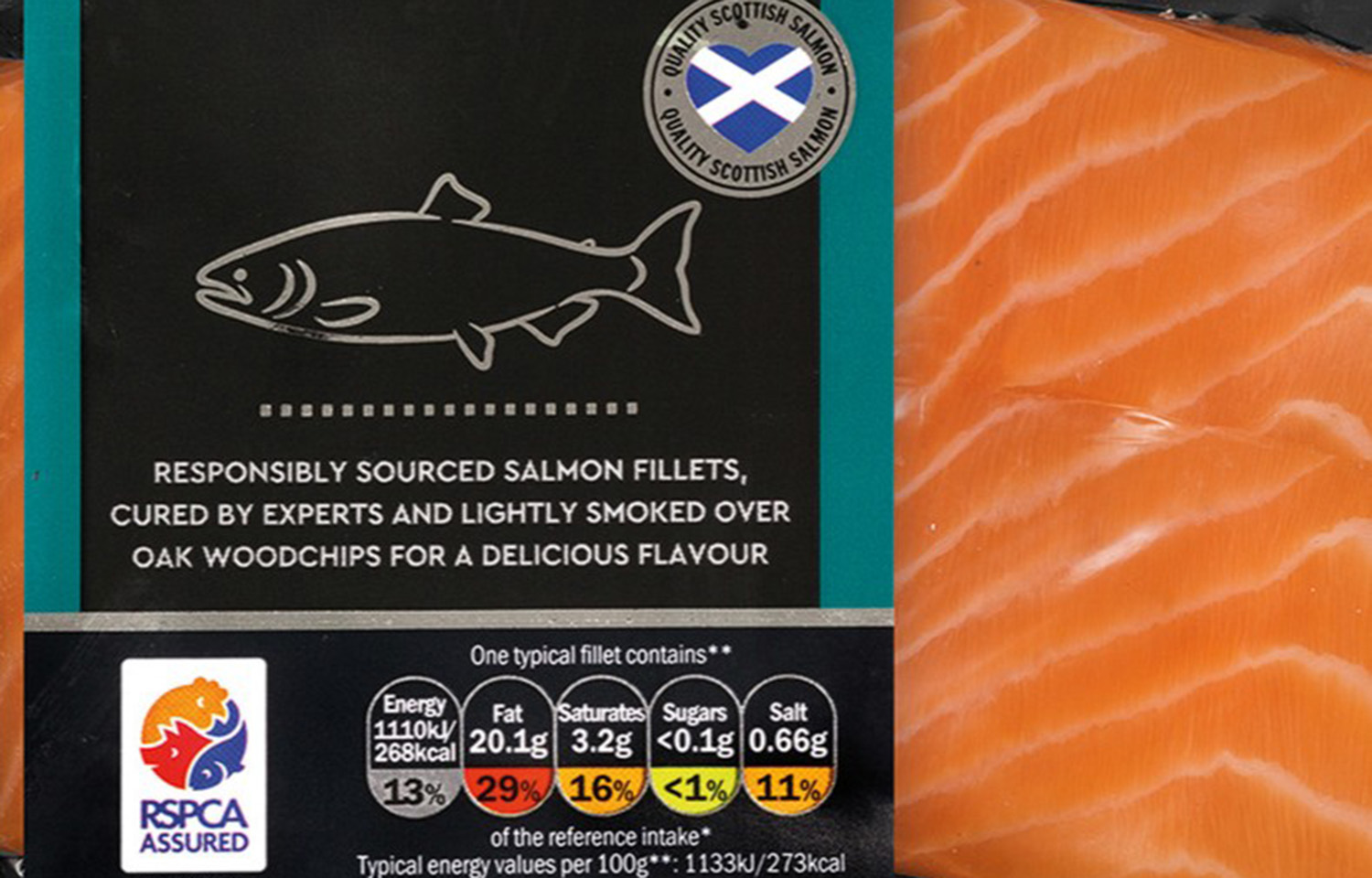The Royal Society for the Prevention of Cruelty to Animals (RSPCA), a U.K.-based nonprofit, has begun revising its farmed salmon standards in the face of mounting criticism of the industry.
The RSPCA Assured certification was established in 2014 and is awarded to farms, hauliers, and abattoirs that conform to strict animal welfare standards. For aquaculture operations, its standards cover animal health, feeding, environmental quality in enclosures, environmental impact, water quality, stocking density, how fish are transported, how they’re slaughtered, and the wider environmental impact of an aquaculture facility.
The standards are based on the RSPCA’s core “Five Freedoms:” freedom from hunger and thirst; freedom from discomfort; freedom from pain, injury, or disease; freedom to express normal behavior; and freedom from fear and distress.
RSPCA confirmed to SeafoodSource that its standards covering the entire salmon life cycle – from hatchery to slaughter – are entering a revision process.
“We are currently preparing to introduce a new revision of the RSPCA salmon standards in the coming months; however, as they are still going through an approval and amendment process, we are not able to provide further details at the moment,” an RSPCA spokesperson told SeafoodSource. “We are working on [the timeline for revisions] at the moment; until we have completed the full approval and amendments process, we can't provide a date as it is subject to change.”
The changes could have significant ramifications for U.K.’s salmon- and trout-farming industry, as the majority of salmon production in Scotland carries certification to the RSPCA standards, including farms operated by Loch Duart, Bakkafrost, Mowi, and Cooke. RSPCA received approximately GBP 690,000 (USD 879,000, EUR 802,000) from salmon farms in 2022 from membership and licensing fees.
RSPCA’s standard process is to conduct a revision of its standards every two years in concert with the expertise of industry experts, veterinarians, welfare specialists, and other key stakeholders. The current review appears to be abnormally thorough and far-reaching, however.
“We are unable to go into detail about the new standards at the moment, but we are confident they will be a positive step forward for fish welfare,” the spokesperson said.
The RSPCA spokesperson also said that publication of the new standards is planned “in the coming months” after an amendment and stakeholder approval process. At that time, they will be shared RSPCA Assured members and made available on the RSPCA website, the spokesperson said. RSPCA Assured-certified farms will have a minimum of three months to review the new standards before they are required to apply them.
The review comes as RSPCA President Chris Packham has signaled he is opposed to further expansion of Scotland’s salmon-farming industry, saying it has had “catastrophic” impacts on fish and the environment.
“The Scottish government hasn’t regulated [salmon-farming] practices in a strict enough way. Therefore, they have been able to ride roughshod over any welfare and environmental concerns,” Packham told the Daily Record. “We need an independent review, commissioned by the Scottish government, into this entire practice, the industry as a whole, and its environmental, economic, and animal welfare impact.”
In a statement, trade group Salmon Scotland defended the industry’s animal welfare practices.
“Scottish salmon farmers provide the highest welfare standards anywhere in the world for animals in their care, and independent certifications from bodies, including the RSPCA, mean Scotland’s fish farmers go further than their statutory responsibilities in areas including animal health and welfare and environmental standards,” it said.
RSPCA seemed to distance itself from the comments by framing them as “personal” and the role of RSPCA as nongoverning.
“Our labeled salmon comes from farms inspected to 500 standards aimed at improving their welfare,” the spokesperson said. “The standards have been a catalyst for change throughout the salmon industry, with most farms now adopting them.”
"Responsibly Farmed?," a report published in September 2023 by U.K. environmental organization Wildfish, found RSPCA Assured-certified farms had inadequate parasite control and high mortality rates. It said the certification provided "lower environmental and welfare standards than could be reasonably expected by consumers."
"The RSPCA Assured standard, which claims to be welfare-led, sets no maximum mortality threshold limits on certified farms. Consequently, Scottish salmon farms reporting as much as 74 percent of its fish dying in a single month can continue to sell the remaining fish as RSPCA Assured-certified 'high-welfare' farmed salmon," the report said. "In 2022, more than 16.7 million salmon died prematurely on Scottish salmon farms, with no loss of RSPCA Assured certification publicly reported because of these record-high mortalities."
Photo courtesy of RSPCA







